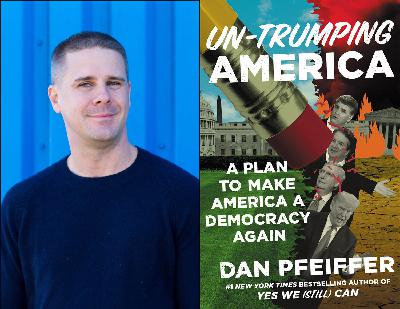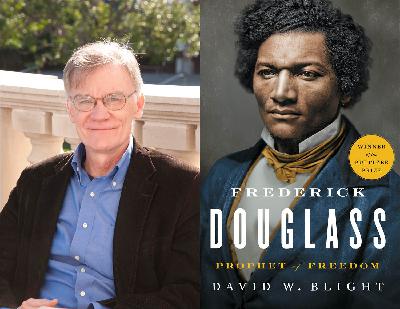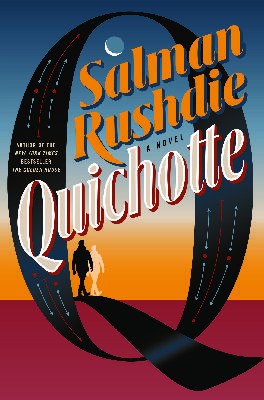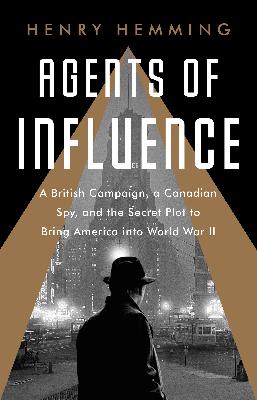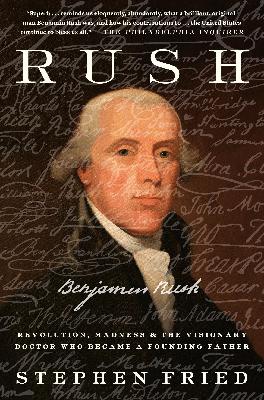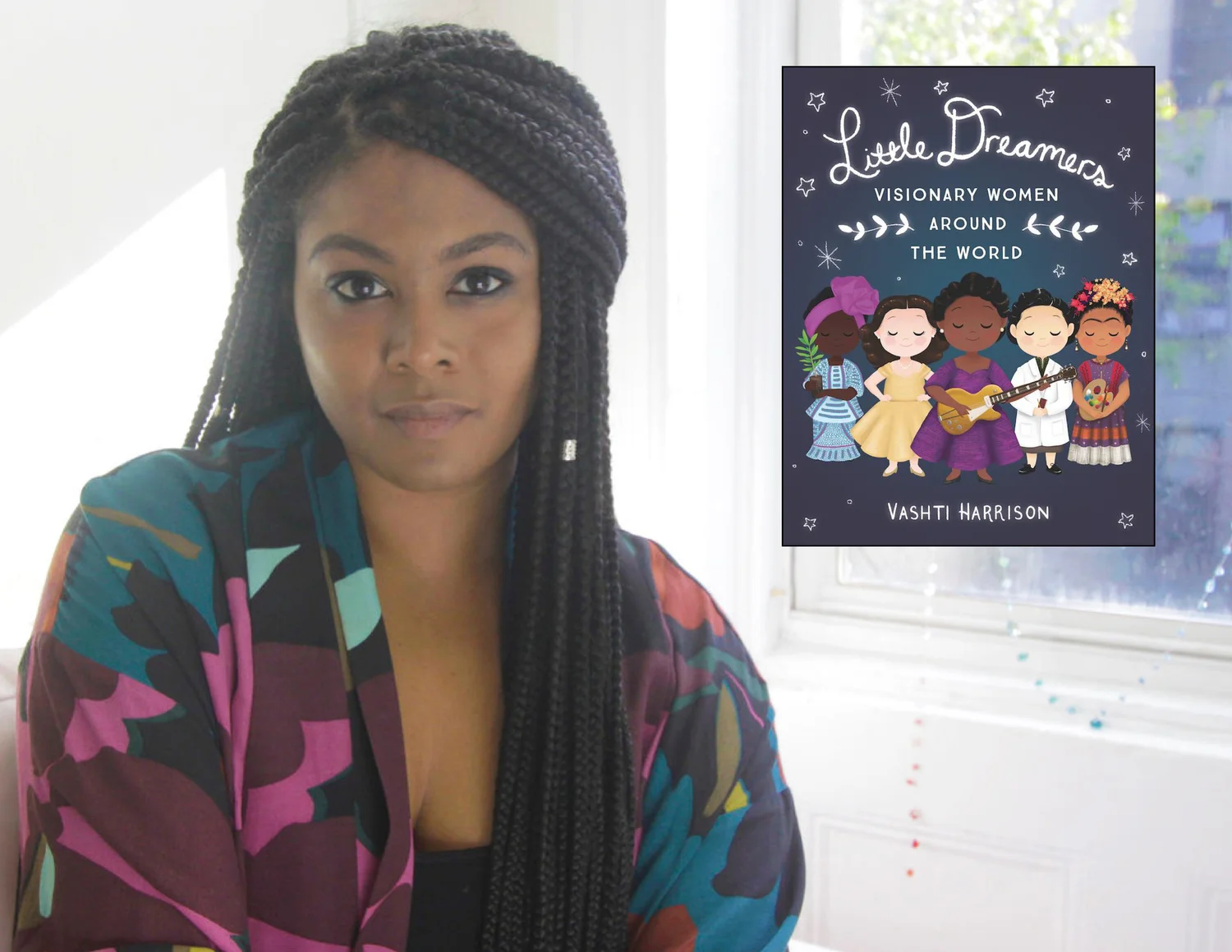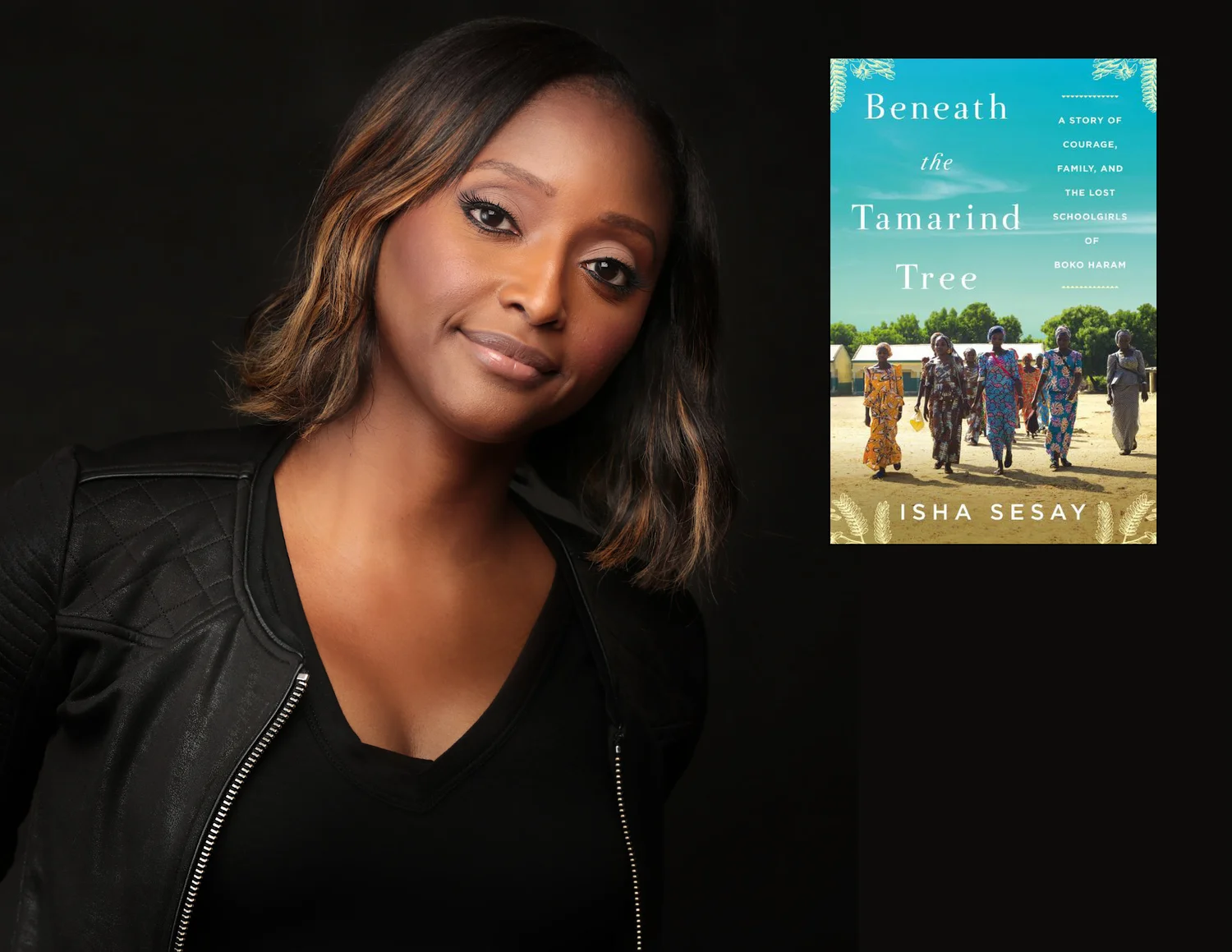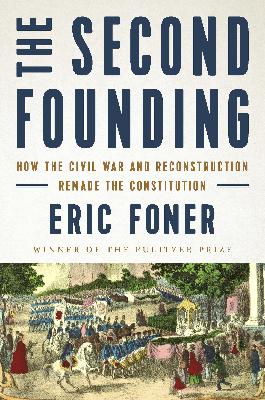Discover Midtown Scholar Bookstore Author Reading Series
Midtown Scholar Bookstore Author Reading Series

Midtown Scholar Bookstore Author Reading Series
Author: Midtown Scholar Bookstore
Subscribed: 9Played: 614Subscribe
Share
© Midtown Scholar Bookstore, Harrisburg, Pennsylvania.
Description
NEW podcast from one of the nation’s premier independent bookstores, in Pennsylvania’s capital city. We proudly host national award-winning authors and emerging literary sensations for free public readings and book signings. Join us each week as we celebrate the essential role of literature in contemporary culture and engage the region’s vibrant literary and civic community in wide-ranging discussions on books, politics, society and the arts. SIGNED new releases by visiting authors are available at www.MidtownScholar.com * “Every Booklover Should Visit” - Travel + Leisure * “Indie bookstore jewel” - Publishers Weekly
81 Episodes
Reverse
From the #1 New York Times bestselling author of Yes We (Still) Can and cohost of Pod Save America, a sharp political playbook for how Democrats can take on Trump, McConnell, Fox News, and the rest of the right-wing circus dominating American politics.
There is nothing more important than beating Donald Trump in 2020, but defeating Trump is just the start of this timely book. Un-Trumping America offers readers three critical insights: first, Trump is not an aberration, but rather the logical extension of the modern Republican Party; second, how Democrats can defeat Trump in 2020; and third, preventing the likes of Trump from ever happening again with a plan to fix democracy.
While the catalog of the president's crimes is long and growing, undoing Trumpism -- the political platform of racism, authoritarianism, and plutocracy that gave rise to Trump and defines the Republican Party -- is a long and continuing fight. Through a craven, cynical strategy engineered by Mitch McConnell, funded by the Kochs, and fueled by Fox News propaganda, Republicans have rigged American politics to drown out the voices of the people in favor of the powerful. Without an aggressive response that recognizes who the Republicans are and what they have done, American democracy as we know it won't survive this moment and a conservative, shrinking, mostly white minority will govern the country for decades.
Un-Trumping America dismantles toxic Trumpism and offers a way forward. Dan Pfeiffer worked for nearly twenty years at the center of Democratic politics, from the campaign trail to Capitol Hill to Barack Obama's White House. But it was Trump's victory and Republicans' incessant aiding and abetting of Trumpism that has radicalized his thinking. Here, Pfeiffer urges Democrats to embrace bold solutions -- from fixing the courts to abolishing the electoral college to eliminating the filibuster -- in order to make America more democratic (and Democratic).
Un-Trumping America is a powerful call for Democrats and progressives to get smarter, tougher, and more aggressive without becoming a paler shade of orange.
A thrilling story of scientific detective work and medical potential that illuminates the newly understood role of microglia—an elusive type of brain cell that is vitally relevant to our everyday lives.
“The rarest of books: a combination of page-turning discovery and remarkably readable science journalism.”—Mark Hyman, MD, #1 New York Times bestselling author of Food: What the Heck Should I Eat?
Until recently, microglia were thought to be merely the brain’s housekeepers, helpfully removing damaged cells. But a recent groundbreaking discovery revealed them to be capable of terrifying Jekyll and Hyde behavior. When triggered—and anything that stirs up the immune system in the body can activate microglia—they can morph into destroyers, impacting a wide range of issues from memory problems and anxiety to depression and Alzheimer’s. Under the right circumstances, however, microglia can be coaxed back into being angelic healers, able to repair the brain in ways that help alleviate symptoms and hold the promise to one day prevent disease.
A fascinating behind-the-scenes account of this cutting-edge science, The Angel and the Assassin also explores the medical implications of these game-changing discoveries. Award-winning journalist Donna Jackson Nakazawa began her investigation with a personal interest—when diagnosed with an autoimmune disorder years ago, she was convinced there was something physical going on in her brain as well as her body, though no doctor she consulted could explain how the two could be interacting in this way. With the compassion born of her own experience, she follows practitioners and patients on the front lines of treatments that help to “reboot” microglia—from neurofeedback and intermittent fasting to transcranial magnetic stimulation and gamma light flicker therapy. She witnesses patients finding significant relief from pressing symptoms—and at least one stunning recovery—offering new hope to the tens of millions who suffer from mental, cognitive, and physical health issues.
Proving once and for all the biological basis for the mind-body connection, the discovery of the true role of microglia stands to rewrite psychiatric and medical texts as we know them. Hailed as “riveting,” “stunning,” and “visionary,” The Angel and the Assassin offers us a radically re-conceived picture of human health and promises to change everything we thought we knew about how to heal ourselves.
From civil rights to Ferguson, Franchise reveals the untold history of how fast food became one of the greatest generators of black wealth in America.
Often blamed for the rising rates of obesity and diabetes among black Americans, fast food restaurants like McDonald's have long symbolized capitalism's villainous effects on our nation's most vulnerable communities. But how did fast food restaurants so thoroughly saturate black neighborhoods in the first place? In Franchise, acclaimed historian Marcia Chatelain uncovers a surprising history of cooperation among fast food companies, black capitalists, and civil rights leaders, who―in the troubled years after King's assassination―believed they found an economic answer to the problem of racial inequality. With the discourse of social welfare all but evaporated, federal programs under presidents Johnson and Nixon promoted a new vision for racial justice: that the franchising of fast food restaurants, by black citizens in their own neighborhoods, could finally improve the quality of black life. Synthesizing years of research, Franchise tells a troubling success story of an industry that blossomed the very moment a freedom movement began to wither.
8 chapter openers
**Winner of the Pulitzer Prize in History**
“Extraordinary…a great American biography” (The New Yorker) of the most important African-American of the nineteenth century: Frederick Douglass, the escaped slave who became the greatest orator of his day and one of the leading abolitionists and writers of the era.
As a young man Frederick Douglass (1818–1895) escaped from slavery in Baltimore, Maryland. He was fortunate to have been taught to read by his slave owner mistress, and he would go on to become one of the major literary figures of his time. His very existence gave the lie to slave owners: with dignity and great intelligence he bore witness to the brutality of slavery.
Initially mentored by William Lloyd Garrison, Douglass spoke widely, using his own story to condemn slavery. By the Civil War, Douglass had become the most famed and widely travelled orator in the nation. In his unique and eloquent voice, written and spoken, Douglass was a fierce critic of the United States as well as a radical patriot. After the war he sometimes argued politically with younger African Americans, but he never forsook either the Republican party or the cause of black civil and political rights.
In this “cinematic and deeply engaging” (The New York Times Book Review) biography, David Blight has drawn on new information held in a private collection that few other historian have consulted, as well as recently discovered issues of Douglass’s newspapers. “Absorbing and even moving…a brilliant book that speaks to our own time as well as Douglass’s” (The Wall Street Journal), Blight’s biography tells the fascinating story of Douglass’s two marriages and his complex extended family. “David Blight has written the definitive biography of Frederick Douglass…a powerful portrait of one of the most important American voices of the nineteenth century” (The Boston Globe).
In addition to the Pulitzer Prize, Frederick Douglass won the Bancroft, Parkman, Los Angeles Times (biography), Lincoln, Plutarch, and Christopher awards and was named one of the Best Books of 2018 by The New York Times Book Review, The Wall Street Journal, The Boston Globe, The Chicago Tribune, The San Francisco Chronicle, and Time.
AN INSTANT NEW YORK TIMES BESTSELLER!
A GOOD MORNING AMERICA BOOK CLUB PICK
"[Moore’s] careful balance of the hard-bitten with the heartfelt is what elevates Long Bright River from entertaining page-turner to a book that makes you want to call someone you love.” – The New York Times Book Review
"This is police procedural and a thriller par excellence, one in which the city of Philadelphia itself is a character (think Boston and Mystic River). But it’s also a literary tale narrated by a strong woman with a richly drawn personal life – powerful and genre-defying.” – People
"A thoughtful, powerful novel by a writer who displays enormous compassion for her characters. Long Bright River is an outstanding crime novel… I absolutely loved it."
—Paula Hawkins, #1 New York Times-bestselling author of The Girl on the Train
Two sisters travel the same streets, though their lives couldn't be more different. Then one of them goes missing.
In a Philadelphia neighborhood rocked by the opioid crisis, two once-inseparable sisters find themselves at odds. One, Kacey, lives on the streets in the vise of addiction. The other, Mickey, walks those same blocks on her police beat. They don't speak anymore, but Mickey never stops worrying about her sibling.
Then Kacey disappears, suddenly, at the same time that a mysterious string of murders begins in Mickey's district, and Mickey becomes dangerously obsessed with finding the culprit--and her sister--before it's too late.
Alternating its present-day mystery with the story of the sisters' childhood and adolescence, Long Bright River is at once heart-pounding and heart-wrenching: a gripping suspense novel that is also a moving story of sisters, addiction, and the formidable ties that persist between place, family, and fate.
"Running with Sherman" by Christopher McDougall
"A delight, full of heart and hijinks and humor . . . McDougall is a gifted storyteller who gets to the heart of the human-animal connection." --John Grogan, author of Marley & Me: Life and Love with the World's Worst Dog
From the best-selling author of Born to Run, a heartwarming story about training a rescue donkey to run one of the most challenging races in America.
When Chris McDougall agreed to take in a donkey from an animal hoarder, he thought it would be no harder than the rest of the adjustments he and his family had made after moving from Philadelphia to the heart of Pennsylvania Amish country. But when he arrived, Sherman was in such bad shape he could barely move, and his hair was coming out in clumps. Chris decided to undertake a radical rehabilitation program designed not only to heal Sherman's body but to heal his mind as well. It turns out the best way to soothe a donkey is to give it a job, and so Chris decided to teach Sherman how to run. He'd heard about burro racing--a unique type of race where humans and donkeys run together in a call-back to mining days--and decided he and Sherman would enter the World Championship in Colorado.
Easier said than done. In the course of Sherman's training, Chris would have to recruit several other runners, both human and equine, and call upon the wisdom of burro racers, goat farmers, Amish running club members, and a group of irrepressible female long-haul truckers. Along the way, he shows us the life-changing power of animals, nature, and community.
Our Dogs, Ourselves" by Alexandra Horowitz
From Alexandra Horowitz, #1 New York Times bestselling author of Inside of a Dog, an eye-opening, informative, and wholly entertaining examination and celebration of the human-canine relationship for the curious dog owner and science-lover alike.
We keep dogs and are kept by them. We love dogs and (we assume) we are loved by them. We buy them sweaters, toys, shoes; we are concerned with their social lives, their food, and their health. The story of humans and dogs is thousands of years old but is far from understood. In Our Dogs, Ourselves, Alexandra Horowitz explores all aspects of this unique and complex interspecies pairing.
As Horowitz considers the current culture of dogdom, she reveals the odd, surprising, and contradictory ways we live with dogs. We celebrate their individuality but breed them for sameness. Despite our deep emotional relationships with dogs, legally they are property to be bought, sold, abandoned, or euthanized as we wish. Even the way we speak to our dogs is at once perplexing and delightful.
In thirteen thoughtful and charming chapters, Our Dogs, Ourselves affirms our profound affection for this most charismatic of animals—and opens our eyes to the companions at our sides as never before.
NEW YORK TIMES BESTSELLER • An epic Don Quixote for the modern age, “a brilliant, funny, world-encompassing wonder” (Time) from internationally bestselling author Salman Rushdie
SHORTLISTED FOR THE MAN BOOKER PRIZE • “Lovely, unsentimental, heart-affirming . . . a remembrance of what holds our human lives in some equilibrium—a way of feeling and a way of telling. Love and language.”—Jeanette Winterson, The New York Times Book Review
NAMED ONE OF THE BEST BOOKS OF THE YEAR BY TIME AND NPR
Inspired by the Cervantes classic, Sam DuChamp, mediocre writer of spy thrillers, creates Quichotte, a courtly, addled salesman obsessed with television who falls in impossible love with a TV star. Together with his (imaginary) son Sancho, Quichotte sets off on a picaresque quest across America to prove worthy of her hand, gallantly braving the tragicomic perils of an age where “Anything-Can-Happen.” Meanwhile, his creator, in a midlife crisis, has equally urgent challenges of his own.
Just as Cervantes wrote Don Quixote to satirize the culture of his time, Rushdie takes the reader on a wild ride through a country on the verge of moral and spiritual collapse. And with the kind of storytelling magic that is the hallmark of Rushdie’s work, the fully realized lives of DuChamp and Quichotte intertwine in a profoundly human quest for love and a wickedly entertaining portrait of an age in which fact is so often indiscernible from fiction.
Praise for Quichotte
“Brilliant . . . a perfect fit for a moment of transcontinental derangement.”—Financial Times
“Quichotte is one of the cleverest, most enjoyable metafictional capers this side of postmodernism. . . . The narration is fleet of foot, always one step ahead of the reader—somewhere between a pinball machine and a three-dimensional game of snakes and ladders. . . . This novel can fly, it can float, it’s anecdotal, effervescent, charming, and a jolly good story to boot.”—The Sunday Times
“Quichotte [is] an updating of Cervantes’s story that proves to be an equally complicated literary encounter, jumbling together a chivalric quest, a satire on Trump’s America and a whole lot of postmodern playfulness in a novel that is as sharp as a flick-knife and as clever as a barrel of monkeys. . . . This is a novel that feeds the heart while it fills the mind.”—The Times (UK)
As World War II raged into its second year, Britain sought a powerful ally to join its cause-but the American public was sharply divided on the subject. Canadian-born MI6 officer William Stephenson, with his knowledge and influence in North America, was chosen to change their minds by any means necessary.
In this extraordinary tale of foreign influence on American shores, Henry Hemming shows how Stephenson came to New York--hiring Canadian staffers to keep his operations secret--and flooded the American market with propaganda supporting Franklin Roosevelt and decrying Nazism. His chief opponent was Charles Lindbergh, an insurgent populist who campaigned under the slogan "America First" and had no interest in the war. This set up a shadow duel between Lindbergh and Stephenson, each trying to turn public opinion his way, with the lives of millions potentially on the line.
The monumental life of Benjamin Rush, medical pioneer and one of our most provocative and unsung Founding Fathers
FINALIST FOR THE GEORGE WASHINGTON BOOK PRIZE • AMERICAN LIBRARY ASSOCIATION NOTABLE BOOK OF THE YEAR
By the time he was thirty, Dr. Benjamin Rush had signed the Declaration of Independence, edited Common Sense, toured Europe as Benjamin Franklin’s protégé, and become John Adams’s confidant, and was soon to be appointed Washington’s surgeon general. And as with the greatest Revolutionary minds, Rush was only just beginning his role in 1776 in the American experiment. As the new republic coalesced, he became a visionary writer and reformer; a medical pioneer whose insights and reforms revolutionized the treatment of mental illness; an opponent of slavery and prejudice by race, religion, or gender; an adviser to, and often the physician of, America’s first leaders; and “the American Hippocrates.” Rush reveals his singular life and towering legacy, installing him in the pantheon of our wisest and boldest Founding Fathers.
Praise for Rush
“Entertaining . . . Benjamin Rush has been undeservedly forgotten. In medicine . . . [and] as a political thinker, he was brilliant.”—The New Yorker
“Superb . . . reminds us eloquently, abundantly, what a brilliant, original man Benjamin Rush was, and how his contributions to . . . the United States continue to bless us all.”—The Philadelphia Inquirer
“Perceptive . . . [a] readable reassessment of Rush’s remarkable career.”—The Wall Street Journal
“An amazing life and a fascinating book.”—CBS This Morning
“Fried makes the case, in this comprehensive and fascinating biography, that renaissance man Benjamin Rush merits more attention. . . . Fried portrays Rush as a complex, flawed person and not just a list of accomplishments; . . . a testament to the authorial thoroughness and insight that will keep readers engaged until the last page.”—Publishers Weekly (starred review)
“[An] extraordinary and underappreciated man is reinstated to his rightful place in the canon of civilizational advancement in Rush. . . . Had I read Fried’s Rush before the year’s end, it would have crowned my favorite books of 2018 . . . [a] superb biography.”—Brain Pickings
Jim Crow was not a regional sickness, it was a national cancer. Even at the high point of twentieth century liberalism in the North, Jim Crow racism hid in plain sight. Perpetuated by colorblind arguments about “cultures of poverty,” policies focused more on black criminality than black equality. Procedures that diverted resources in education, housing, and jobs away from poor black people turned ghettos and prisons into social pandemics. Americans in the North made this history. They tried to unmake it, too.
Liberalism, rather than lighting the way to vanquish the darkness of the Jim Crow North gave racism new and complex places to hide.
The twelve original essays in this anthology unveil Jim Crow’s many strange careers in the North. They accomplish two goals: first, they show how the Jim Crow North worked as a system to maintain social, economic, and political inequality in the nation’s most liberal places; and second, they chronicle how activists worked to undo the legal, economic, and social inequities born of Northern Jim Crow policies, practices, and ideas.
The book ultimately dispels the myth that the South was the birthplace of American racism, and presents a compelling argument that American racism actually originated in the North.
A thought-provoking exploration of how people really change their minds, and how persuasion is possible.
In Stop Being Reasonable, Eleanor Gordon-Smith weaves a narrative that illustrates the limits of human reason.
Here, she tells the stories of people who have radically altered their beliefs--from the woman who had to reckon with her husband's terrible secret to the man who finally left the cult he had been raised in since birth. Gordon-Smith shows how we can change the course of our own lives, and asks: what made someone change course? How should their reversals affect how we think about our own beliefs? And in an increasingly divided world, what do they teach us about how we might change the minds of others?
Inspiring, perceptive, and moving, Stop Being Reasonable explores why resistance to evidence is often rooted in self-preservation and fear, why we feel shame in admitting we are wrong, and why who we believe is often more important than what we believe. This fascinating book will completely change the way you look at the power of persuasion.
From award-winning authors Ibram X. Kendi and Imani Perry comes a powerful conversation on racial justice in America, showing us how to understand and uproot racism in our society — and in ourselves. In Breathe, Perry explores the terror, grace, and beauty of coming of age as a black person in contemporary America. And in How to Be an Antiracist, Kendi asks us to think about what an antiracist society might look like, and how we can play an active role in building it. Moderated by award-winning author Keisha Blain, Kendi and Perry point us toward liberating new ways of thinking about ourselves and each other.
Internationally bestselling novelist Téa Obreht mesmerized readers with her timeless debut novel, The Tiger’s Wife. Weaving a brilliant latticework of family legend, loss, and love, Obreht, the youngest of The New Yorker’s twenty best American fiction writers under forty, spun a novel that established her as one of the most vibrant, original authors of her generation. Now, in her new novel, Inland, Obreht returns to subvert and reimagine the myths of the American West, making them entirely—and unforgettably—her own. Moderated by award-winning novelist Liz Moore, Obreht will discuss her award-winning novels and the spectacular triumphs of storytelling.
We can swallow our fear or let our fear swallow us. Twenty years ago, Stephen Chbosky's The Perks of Being a Wallflower made readers everywhere feel infinite. Now, Chbosky has returned with an epic work of literary horror, years in the making, whose grand scale and rich emotion redefine the genre. In Imaginary Friend, Chbosky takes us to Mill Grove, Pennsylvania — where seven year-old Christopher and his mother on the run. At first, it seems like the perfect place to finally settle down. Then Christopher vanishes. For six awful days, no one can find him. Until Christopher emerges from the woods at the edge of town, unharmed but not unchanged. He returns with a voice in his head only he can hear, with a mission only he can complete. Read it with the lights on.
From two new emerging voices in fiction — these page-turning debut novels show us the power and transcendence of storytelling. In The Farm, Joanne Ramos gives us a gripping, provocative, and heartbreaking narrative on immigration, motherhood, money, and merit. And in the bestselling The Incendiaries, R.O. Kwon delivers a powerful, darkly glittering novel of violence, love, faith, and loss — and what can befall those who lose what they love most.
For readers craving a humorous antidote to the sound and the fury of American politics, these clever parodies offer an escapist reprieve for those pining for the previous administration. In Hope Rides Again, Andrew Shaffer provides the highly anticipated sequel to the New York Times bestselling Hope Never Dies. Obama and Biden reprise their roles as BFFs-turned-detectives as they chase Obama's stolen cell phone through the streets of Chicago — and right into a vast conspiracy. And in MacTrump, bestselling authors Ian Doescher and Jacopo della Quercia fictionalize the events of the first two years of the Trump administration — in iambic pentameter. Will MacTrump be able to hold on to his throne? Only time will tell in this tragicomic tale of ambition, greed, and royal ineptitude — based on Shakespeare's Macbeth.
In their debut picture book, author/illustrator team Jonathan Stutzman and Heather Fox introduce young readers to the comical, the studious, the oblivious Llama, a picture-book hero for the ages. Grab some cake and your dancing pants and prepare for Llama Destroys the World... because THE TIME FOR LLAMA IS NIGH! Join Stutzman and Fox as they read from their new picture book, Llama Destroys the World.
Join New York Times bestselling author & illustrator Vashti Harrison as she introduces young readers to trailblazing women who changed the world. Harrison will read from her two bestsellers: Little Leaders: Bold Women in Black History and Little Dreamers: Visionary Women Around the World. Afterwards, Harrison will conduct a drawing demo on the main stage for kids of all ages!
A book signing will follow the presentation. Copies of Little Leaders, Little Dreamers, Hair Love, Festival of Colors, and Cece Loves Science will be available for purchase.
In the early morning of April 14, 2014, the militant Islamic group Boko Haram violently burst into the small town of Chibok, Nigeria, and abducted 276 girls from their school dorm rooms. From poor families, these girls were determined to make better lives for themselves, but pursuing an education made them targets, resulting in one of the most high-profile abductions in modern history. In Beneath the Tamarind Tree, Isha Sesay tells this story as no one else can. With a soaring message of hope at its core, Isha Sesay will deliver the Keynote Address for the 2019 Harrisburg Book Festival, reminding us of the ever-present truth that progress for all of us hinges on unleashing the potential of women.
From Pulitzer Prize–winning historian Eric Foner, a timely history of the constitutional changes that built equality into the nation’s foundation — and how those guarantees have been shaken over time. In The Second Founding: How the Civil War and Reconstruction Remade the Constitution, Foner informs our understanding of the present as well as the past. Knowledge and vigilance are always necessary to secure our basic rights.
Eric Foner will be interviewed on-stage by WITF’s Scott LaMar for Smart Talk Live.


